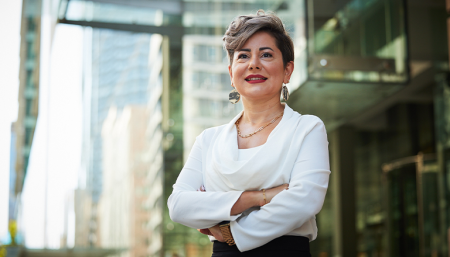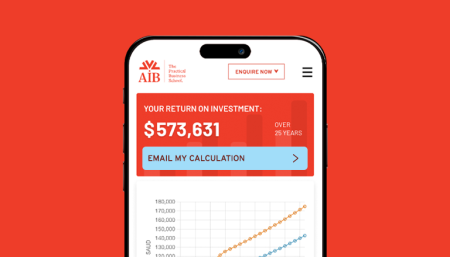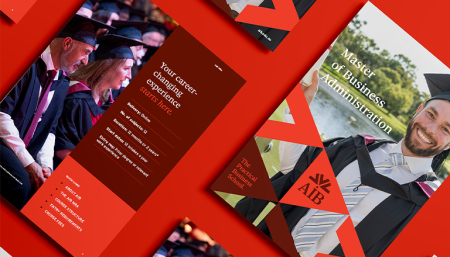4 ways the Adelaide Festival Centre supports the diverse arts and festival culture in South Australia

Douglas Gautier has had a long and impressive career in the arts and entertainment sectors across a number of cultures internationally. After living, working and leading artistic programmes throughout Asia and the United Kingdom, he returned to Australia in 2006 to assume the position of Artistic Director and CEO at the Adelaide Festival Centre, where he has initiated a major programme-led revival in South Australia, which has increased audiences for all art forms. Douglas has also positioned the Adelaide Festival Centre, with its comprehensive and multifaceted programme, as a hub for Asian-Australian cultural engagement.
As the guest speaker at the AIB Adelaide Alumni & Student Event in June, Douglas delivered a fascinating presentation on the Adelaide Festival Centre, its roots in the South Australian arts and festival culture and the business of arts and entertainment in the Asia Pacific. Here are 4 ways the Adelaide Festival Centre critically supports the arts and festival culture in South Australia.
1. The AFC develops and generates awareness of events to promote and encourage social inclusion
When South Australians reference the Adelaide Festival Centre, they often do so with the Festival Theatre in mind, which is just one of the many venues, festivals and movements run by the Centre.
In fact, the Festival Centre produces and presents a number of festivals including the OzAsia Festival, Adelaide Cabaret Festival, Guitar Festival and Come Out Children’s Festival. In addition, the Festival Centre is the primary venue for the annual Adelaide Festival.
The Adelaide Cabaret Festival, which has recently wrapped up for the year, was the biggest to date, grossing the highest amount in its history. This success has and will have a positive effect on Adelaide’s reputation, tourism industry, jobs and the economy.
OzAsia, which will run over two weeks in September and October, will promote and celebrate Asian-Australian cultural engagement and our multicultural communities. Douglas stated that:
“OzAsia was the bridgehead in terms of saying our interaction with Asia is an important investment in our country, and alongside trade, politics and business, culture is inevitably an important part of that mix.”
2. The delivery of a diverse events calendar for all South Australians across multiple venues
The Festival Centre runs four theatrical venues in Adelaide, where shows, festivals and exhibits are regularly hosted. The Festival Theatre, which was the nation’s first capital city arts centre, is the largest of the venues, seating up to 2000 people in the iconic Adelaide proscenium arch theatre. This is where long-running musicals such as Wicked have performed in the past, attracting over 100,000 ticket sales. During his presentation, Douglas explained that these are the attractions that “pay the piper”. However, to lock in long-running musicals, Douglas and his team have to work very hard on incentives, marketing opportunities and deals. In the same complex as the Festival Theatre are the Dunstan Playhouse and Space Theatre, which host smaller shows.
The Festival Centre is also spearheading the renewal of the Her Majesty’s Theatre, which currently seats fewer than 1000 people, but plans to seat 1500 following the project’s completion. The renewal of the iconic Adelaide theatre, which is 102 years old this year, is a project which will promote the arts and festivals culture in Adelaide while maintaining the building’s history and integrity.
3. Support of the South Australian economy
When Douglas commenced as CEO and Artistic Director in 2006, the Festival Centre was in 29 million dollars of debt and had been in the red for many years. Today, the Festival Centre is a thriving arts business, which Douglas partially credits to getting great programmes to commit to fill the theatres year round and effectively managing their sales operation – BASS. Douglas also credits the importance of a thriving riverbank precinct, functions, merchandising and fundraising through corporate and private philanthropy.
The Festival Centre has also created over 800 jobs for South Australians, and with the business now thriving, Douglas sees great opportunities for arts and entertainment specialists.
4. The creation and promotion of events to bridge social and cultural gaps
In addition to being commercially successful, the Adelaide Festival Centre also promotes social inclusion and diversity through its programmes, festivals and initiatives. As the main arts and entertainment attraction in the Adelaide CBD and a major supporter of Asian-Australian engagement, the Festival Centre takes the nurturing of culture and multi-culturalism very seriously.
Douglas emphasised that cultural institutions like the Festival Centre should be proactive contributors to the cultural growth of society and the integration of its citizens.
“We put a lot of emphasis on involving a lot of multicultural groups across the city and helping them to feel that they are part and parcel of what we do.”
Douglas also notes working with young people through festivals such as Come Out as an important investment in introducing them to cultural activity.
What do you think?
Did you attend the Adelaide Alumni & Student Event? We’d love to hear about what you found most fascinating from Douglas Gautier’s presentation on the Adelaide Festival Centre. Comment below to win a copy of “Alchemy” by Ali McGregor, who performed at the event.
This article was developed by Megan Baker on behalf of the Australian Institute of Business. All opinions are that of the writer and do not necessarily reflect the opinion of AIB.
Explore more AIB events.




